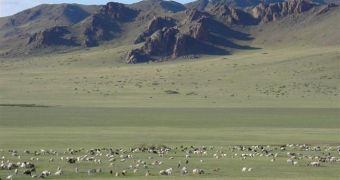The US National Science Foundation (NSF) are very interested in developing a better understanding of the mechanisms underlying the interactions that develop between humans and their environment.
To that end, the organization has decided to award 14 new research grants to various research groups, whose goal is to study these interactions in such a manner that the knowledges obtained can be used to inform us on how to adapt to a changing world.
The fact that Earth is getting warmer is no longer a secret to anyone, and the gradual climate change is brining about a host of modifications to weather patterns, ecosystem ranges and so on.
Getting a clear picture of the grand scheme of things is not easy. But quantifying the effects that this global phenomenon has on individual areas or systems is a lot easier, so a combinatorial approach can be used to determine most interactions, experts believe.
As such, the new NSF grant were awarded to a variety of experts, ranging from educators and scientists to engineers. Their research teams will approach the subject from a variety of angles, thus helping to shed more light on how we interact with the world around us.
“Understanding coupled natural and human systems lies at the heart of the quest for global sustainability, and generates crucial knowledge for solutions to environmental and socioeconomic challenges,” explains Sarah Ruth.
She is the program director of the NSF Directorate for Geosciences (GEO), one of the divisions supporting the work. The Directorate of Social, Behavioral and Economic Sciences (SBE) and the Directorates for Biological Sciences (BIO) are also supporting the grants.
This is the fourth year that the Foundation is awarding grant money through its Dynamics of Coupled Natural and Human Systems (CNH) Program.
“NSF's CNH projects address fundamental issues about the adaptability and resilience of human and natural systems, and illustrate the relevance of the CNH program to the broader portfolio of sustainability research supported by NSF,” adds Alan Tessier, the BIO program director.
“CNH-supported projects have been particularly adept at examining the complex interactions between human activity and natural system dynamics, and these new projects will continue to do so in a diverse set of settings and problems,” says SBE program director Thomas Baerwald.

 14 DAY TRIAL //
14 DAY TRIAL //